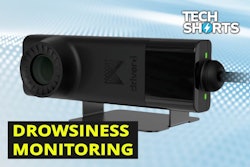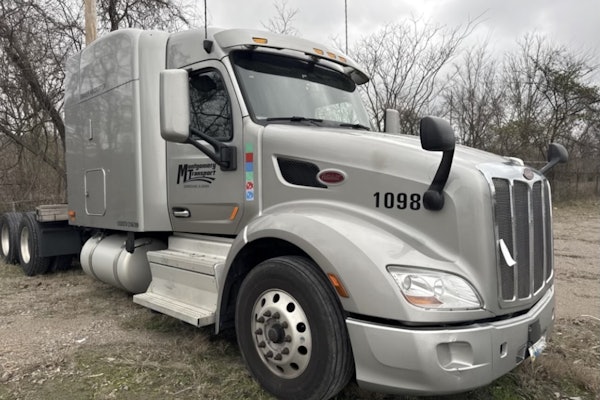There has been a new development in a case involving two popular trucking technology companies that have been in a legal battle since the beginning of the year.
Samsara, a trucking technology provider of ELD, telematics and safety cameras, filed a complaint against fleet management provider Motive Technologies Inc. with the International Trade Commission (ITC) in February following a January lawsuit filed in a federal court that sought compensation for patent infringement.
Megan Wantland, investigative attorney at the Office of Unfair Import Investigations, an independent participant in the ITC investigation who represents the public interest, on Tuesday offered a pre-hearing brief that stated she “does not expect the evidence to establish a violation of Section 337 as to the Asserted Patents.”
This is not a final determination in the case, which has been pending since February and included many pre-hearing filings. This brief, which takes into account evidence provided by both parties from pre-hearing filings, is subject to the evidence that will be presented at the final hearing, which is set to begin Thursday.
“This confirms what we have known all along. Samsara's legal case was not about protecting IP; it was an attempt to limit competition and prevent customers from accessing the best technology,” Motive said in a statement Tuesday. “While Samsara pursues a losing strategy focused on litigation rather than innovation, at Motive, we remain focused on serving our customers and building exceptional AI technology that makes our roads safer.”
[RELATED: Motive fires back in legal tussle with Samsara, files countersuit]
The original complaint, filed by Samsara in February, alleged violations of Section 337 by Motive in the importation into the United States, sale for importation, and sale within the United States after importation of certain vehicle telematics, fleet management and video-based safety systems, devices and components, including AI dashcams, vehicle gateways and corresponding software via infringement of three patents.
Motive said this brief finds that its products do not infringe on any of Samsara’s three patents because two of those patents are considered invalid because they cover ideas that can’t legally be patented, and one because similar ideas already existed before Samsara filed the patent, rendering it unpatentable.
The brief states that the ITC investigative staff reserves the right to reassess Motive’s invalidity allegations based on the evidence, including expert testimony, presented at the hearing.
Samsara responded to the brief in a statement:
“Motive’s misrepresentation of the Staff’s preliminary views is an attempt to manipulate public perception with inaccuracies and premature conclusions. This is yet another example of Motive’s underhanded tactics and attempts to mislead the public. The judge overseeing this case has not ruled on the merits of Samsara’s claims. In fact, the judge has repeatedly rejected Motive’s efforts to end this investigation and invalidate Samsara’s patents, which is why all claims will be presented at our hearing beginning this Thursday. We remain confident that the evidence presented at the hearing will expose Motive’s pattern of infringement and systematic copying. We anticipate that the judge will issue an initial determination on all claims by March 2025, as directed by the scheduling order in the case.”












